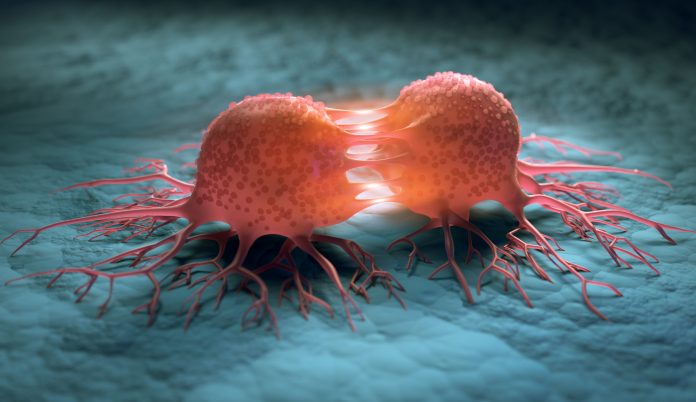
A new study from investigators at Duke University leveraging IGA antibodies to target and eliminate tumor-promoting molecules deeply embedded within cancer cells shows promise to provide more effective and less toxic treatment for cancer than currently used therapies. The research, led by Jose Ramon Conejo-Garcia, MD, PhD, an immunologist at the Duke University School of Medicine, centers on dimeric IgA (digA) antibodies, which have a special structure that enables them to target specific mutations linked with PIGR, a protein expressed on the surface of most epithelial cancer cells, contributing to their growth and survival.
“This is a proof-of-concept study, but the results are very promising,” said Conejo-Garcia, a Duke Science and Technology scholar in the Department of Integrative Immunobiology. “We believe that this treatment could be used to target a wide range of cancer mutations.”
One of the mutations linked with PIGR is KRAS G12D, which is know to be a driver of some of the deadliest cancers. The new research has found that digA binds to mutated proteins and then—in a process known as transcystosis—moves them out of the cells and, as a result, stops tumor growth.
Using a mouse model, the team showed that the KRAS G12D-specific antibody proved to be more effective at shrinking cancer tumors than current treatments for cancer in clinical tests. Taking the same approach with another known cancer mutation—IDH1 R122H, which is found deep inside cancer cells—the researchers returned similar results.
The potential for an immunotherapy approach to treating KRAS-driven cancers is highly promising, as targeting the mutated KRAS protein has proven to be challenging, and also because existing small-molecule treatment approaches to reach certain cancer cells have short half lives and quite often cause side-effects. The potential of IGA antibodies for targeted therapyiesagainst stubborn mutations driving common, aggressive cancers, particularly epithelial cancers such as ovarian, skin, colon, cervical, prostate, breast, and lung cancer, is an exciting prospect.
“This is a new way of targeting tumor cells by using an antibody that is exquisitely specific for point mutations or molecules that are truly tumor specific,” said Conejo-Garcia. “By neutralizing them and ensuring these tumor-promoting molecules are expelled outside the cell, we can halt tumor growth.”
This early research has suggested future avenues of inquiry based on the limitations of the study noted by the authors of the paper, published in the journal Immunity. One such potential area for further exploration is whether mutant tumors that have become resistant to existing small-molecule inhibitors could be still sensitive to PIGR-mediated interventions.
“Antibodies designed to recognize the constitutively active (GTP-bound) KRAS structure elicited by different mutations could be particularly effective in this context,” the researchers wrote. “Conversely, loss of PIGR could make tumors resistant to dIgA while remaining sensitive to drug inhibitors.”
The team also suggested studying “the mechanisms whereby CD8+ T cells participate in the effects of oncogene-specific dIgA, which may depend on the immunogenicity of each disease (e.g., as a result of different tumor burden).”
The researchers concluded by adding that making recombinant digA is more challenging than IgG. “Modifications of the Fc domain of IgG to trigger PIGR-mediated transcytosis while preserving binding to FcRn to ensure persistence need to be investigated to pave the way for novel immunotherapies against the most frequent and aggressive human cancers,” the authors noted.













